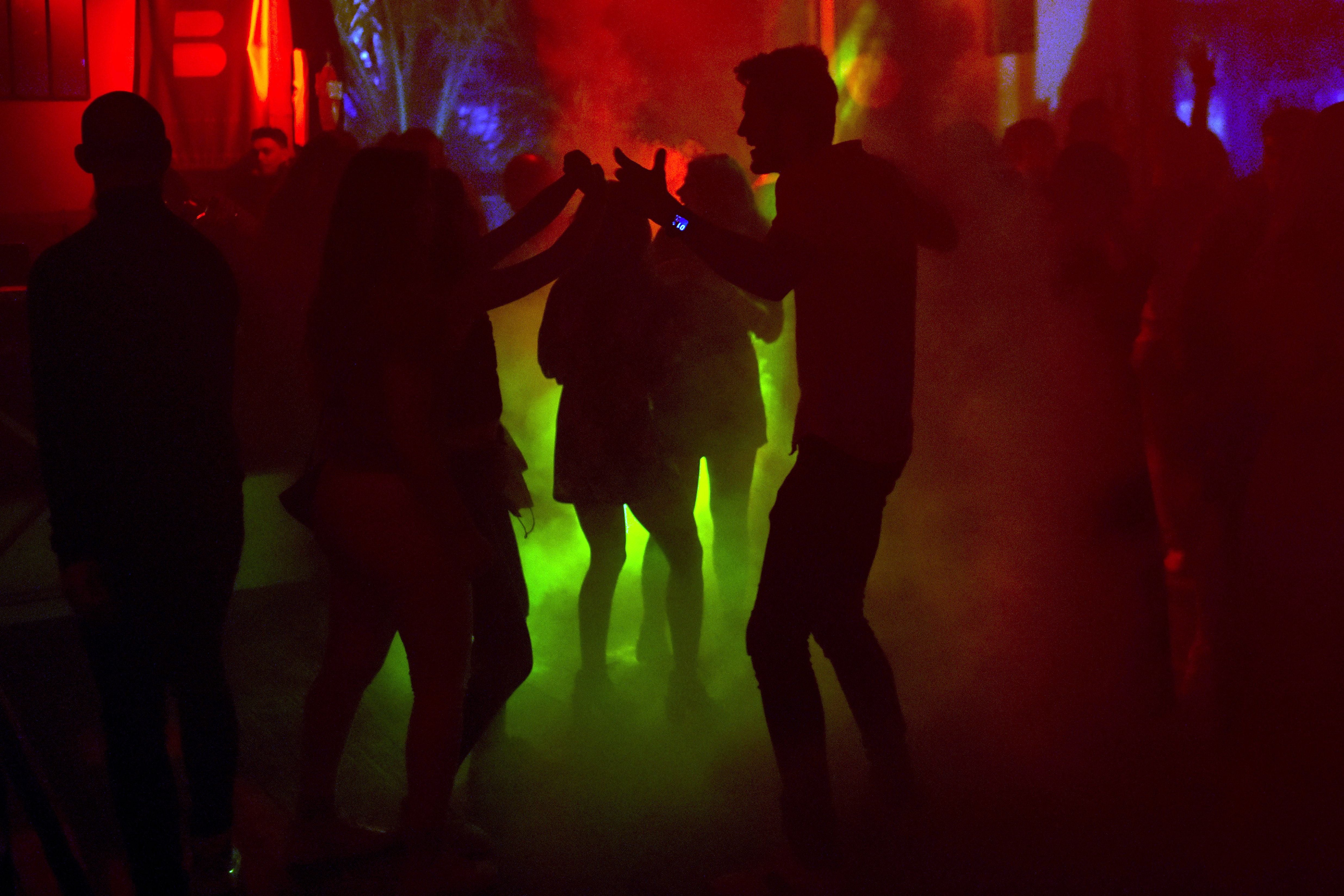Girls Night In campaign to boycott nightclubs over spikings branded ‘backwards’ by campaigners
‘I’ve had so many messages from trolls saying: ‘If you don’t want to get spiked, just stay in’. If we do that and stay in, we are giving them exactly what they want,’ says campaigner

The “Girls Night In” campaign which urges women to boycott nightclubs and bars in response to the recent rise in drink spiking is “backwards” and “defeatist”, campaigners have said.
The issue of drink spiking has grabbed headlines after troubling reports surfaced of women being spiked with needles – with Nottinghamshire Police, West Yorkshire Police, and Police Scotland currently investigating the claims.
Boycotts of nightclubs organised in response by campaign group Girls Night In are due to take place across UK cities in the next two weeks as students call for tighter security measures in venues.
But Mair Howells, who set up campaign group Ivebeenspiked in March last year, told The Independent the newly-established Girls Night In campaign places too much onus on women to alter their behaviour rather than tackling the root of the problem.
“It is pretty backwards,” the 22-year-old, who had her drink spiked in February last year, said. “I don’t believe it is the right solution. I don’t believe as women we should be made to stay indoors.”
Ms Howells said the boycotts do not take into account the fact that drink spiking can happen anywhere – such as in house parties or at pubs – rather than solely in nightclubs.
The campaigner added: “The Girls Night In campaigners are a bit defeatist. I’ve had so many messages from trolls saying: ‘If you don’t want to get spiked, just stay in’. If we do that and stay in, we are giving them exactly what they want.”
Ms Howells, who has seen a surge in people coming forward fearing they were spiked since bars and clubs reopened post-lockdown, also condemned calls from the campaigners to ramp up security measures in nightclubs in response to the rise in drink spiking.
She said: “Increasing security gives up more space for abuse of power and doesn’t consider marginalised communities or women and the effect this could have on them. It does take away from the freeness of going out.
“Unless you were going to strip search someone – which we should not be doing - people are going to find a way to get things into clubs. Clubs and bars and the whole nightlife industry have lost lots of money in the pandemic, they need support.”
Ms Howells argued going to bars or nightclubs is important for mental health - adding that people can find their “crowd or scene and learn about themselves”. Going out is a “rite of passage” for young people, she added.
Helena Conibear, chief executive of the Alcohol Education Trust, also hit out at the Girls Night In campaign group – which is active in around 30 cities - for failing to place the burden of responsibility on drink spikers themselves.
“I’m not against it raising the profile of the prevalence of drink spiking but I don’t think it is going to solve any of the problems, because we have to tackle the perpetrators,” she told The Independent.
“Also drink spiking is as prevalent in house parties as the nighttime economy. The most crucial thing is more reporting, and when it is reported, it is taken seriously by police, medics and those in A&E so everyone feels confident if they come forward, they will be taken seriously.”
Hannah Thomson, an ex-student from Glasgow, launched a petition to legally force nightclubs to thoroughly search people entering venues to “prevent harmful weapons and other items entering the establishment”. The petition has garnered more than 150,000 signatures, which means parliament will now have to consider debating the issue.
But the Manchester arm of Girls Night In asked people to refrain from signing the petition – saying boosting security guards’ powers “would have a negative impact on multiple sections of our community, particularly Black people”.
The Nottingham branch argued the 27 October boycott was about forcing clubs and bars to “increase their entry security” over rising numbers of drink spiking reports.
“This is not a stay at home message,” the group said. “This is asking our students to protest against the clubs and bars. They are not responding to our complaints, so we must make them.”
Deputy Chief Constable Jason Harwin, the National Police Chiefs’ Council lead for drugs, said they have identified several reports across different parts of the country of both drink spiking and spiking via injection.
“From the information we’ve gathered so far, there have been around 140 confirmed reports across September and October of drink spiking and 24 reports of some form of injection,” Mr Harwin said. “There are both male and female victims, though the majority have been young women. Alleged offences have taken place at licensed premises and private parties.”
Drink spiking puts victims in a situation where they are vulnerable to being sexually assaulted, raped, robbed, or accidentally injuring themselves.
Elaine Hindal, chief executive of Drinkaware, which curbs alcohol harm and misuse, said: “If your drink has been spiked it’s unlikely that it will look, smell or taste any different but the consequences can be very serious.
“Drinks can be spiked with more alcohol or with drugs, including date-rape drugs, with most taking effect within 15-30 minutes and symptoms usually lasting for several hours. Depending on what your drink has been spiked with, your symptoms could include lowered inhibitions, loss of balance, visual problems, confusion, nausea and vomiting or even unconsciousness.”
Join our commenting forum
Join thought-provoking conversations, follow other Independent readers and see their replies
Comments




Bookmark popover
Removed from bookmarks